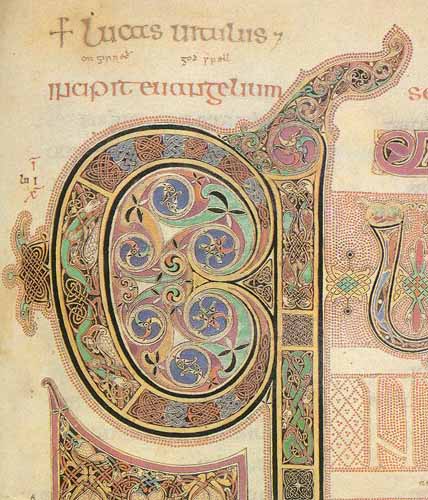CHAPTER TWENTY SIX: THE SUMMONS FROM BETHANY
Eliezer, Jesus’ most beloved disciple had become gravely ill, so his sisters sent word to Jesus, “Master, the one you love is sick.” When he heard this, Jesus said, “This sickness will not end in death. No, it is for G-d’s glory so that G-d’s Son may be glorified through it.” Jesus loved Martha and her sister and Eliezer. Yet when he heard that Eliezer was sick, he stayed where he was two more days. Then he said to his disciples, “Let us go back to Judea.”
“But Master,” they said, “a short while ago some Judeans there tried to stone you, and yet you are going back there?”
Jesus answered, “Are there not twelve hours of daylight? A man who walks by day will not stumble, for he sees by this world’s light. It is when he walks by night that he stumbles, for he has no light. Our friend Eliezer has fallen asleep; but I am going there to wake him up.”
His disciples, growing increasingly alarmed, replied, “Master, if he sleeps, he will get better.” Jesus had been speaking of his death, but his disciples thought he meant natural sleep. So then he told them plainly, “Eliezer is dead, and for your sake I am glad I was not there, so that you may believe. But let us go to him.”
Then Thomas (called Didymus), the most skeptical of the disciples, said to the rest of the disciples, “Let us also go, that we may die with him.”
On his arrival, Jesus found that Eliezer had already been in the tomb for four days. Bethany was less than two miles from Jerusalem, and many Judeans had come to Martha and Miryam to comfort them in the loss of their brother. When Martha heard that Jesus was coming, she went out to meet him along the road into town, but Miryam stayed at home.
“Master,” Martha said to Jesus, “if you had been here, my brother would not have died. But I know that even now G-d will give you whatever you ask.”
Jesus reassured her, “Your brother will rise again.”
Martha answered, “I know he will rise again in the resurrection of the righteous at the last day.”
Jesus said to her, “I am the resurrection and the life! He who believes in me will live, even though he dies and whoever lives and believes in me will never die. Do you believe this?”
“Yes, Master,” she told him, “I believe that you are the long promised messiah, the Son of G-d, who was to come into the world.” And after she had said this, she went back and called her sister Miryam aside. “The Teacher is here,” she said, “and is asking for you.”
When Miryam heard this, she got up quickly and went to him. Jesus had not yet entered the village, but was still at the place where Martha had met him. When the Judeans who had been with Miryam in the house, comforting her, noticed how quickly she got up and went out, they followed her, supposing she was going to the tomb to mourn there. When Miryam reached the place where Jesus was and saw him, she fell at his feet and said the very same thing Martha had said, “Master, if you had been here, my brother would not have died.”
When Jesus saw her weeping, and the Jewish officials who had come along with her also weeping, he was deeply moved in spirit and troubled.
“Where have you laid him?” he asked.
“Come and see, Master,” they replied. Overcome by both the sorrow that was present, and the pain he felt from their lack of understanding, Jesus wept.
Then some of the Judeans said, “See how he loved him!” But some of them added, “Could not he who opened the eyes of the blind man have kept this man from dying?”
Jesus was once more deeply moved, this time with anger, as he came to the tomb. It was a cave with a stone laid across the entrance. “Take away the stone,” he said.
“But, Master,” said Martha, the sister of the dead man, “by this time there is a bad odor, for he has been there four days.”
Then Jesus replied sternly:, “Did I not tell you that if you believed, you would see the glory of G-d?”
So reluctantly they rolled away the stone. Then Jesus looked up and said, “Father, I thank you that you have heard me. I knew that you always hear me, but I said this for the benefit of the people standing here, that they may believe that you sent me.”
When he had said this, Jesus called in a loud voice, “Eliezer, come out!” The dead man came out, his hands and feet wrapped with strips of linen, and a cloth around his face.
Jesus said to them, “Unwind the linen clothes and let him go.” Therefore many of the Judeans who had come to visit Miryam, and had seen what Jesus did, put their faith in him. But some of them went to the Pharisees and told them what Jesus had done.
Then the chief priests and the Pharisees called a meeting of the Sanhedrin.
“What are we accomplishing?” they asked. “Here is this man performing many miraculous signs. If we let him go on like this, everyone will believe in him, and then the Romans will come and take away both our temple and our nation.”
Then one of them, named Caiaphas, who was high priest that year, spoke up, “You know nothing at all! Don’t you realize that it is better for you that one man die for the people than that the whole nation perish?” He did not say this on his own, but as high priest that year he prophesied that Jesus would die for the Jewish nation, and not only for that nation but also for the scattered children of G-d, to bring them together and make them one. So from that day on they plotted and schemed to take his life.
Therefore Jesus no longer moved about publicly among the Judeans. Instead he withdrew to a region near the desert, to a village called Ephraim, where he stayed with his disciples. When it was almost time for the Jewish Passover, many went up from the country to Jerusalem for their ceremonial cleansing before the Passover. They kept looking for Jesus, and as they stood in the temple area they asked one another, “What do you think? Isn’t he coming to the Feast at all?” But the chief priests and Pharisees had given orders that if anyone found out where Jesus was, he should report it so that they might arrest him.

